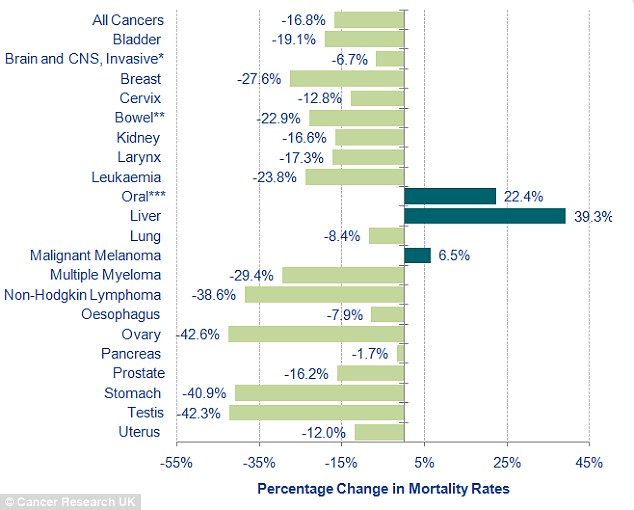The death rate of cancer will decline
Last reviewed: 17.10.2021

All iLive content is medically reviewed or fact checked to ensure as much factual accuracy as possible.
We have strict sourcing guidelines and only link to reputable media sites, academic research institutions and, whenever possible, medically peer reviewed studies. Note that the numbers in parentheses ([1], [2], etc.) are clickable links to these studies.
If you feel that any of our content is inaccurate, out-of-date, or otherwise questionable, please select it and press Ctrl + Enter.
British scientists predict that by 2030 the number of deaths caused by malignant tumors will be reduced by 17%.
To this conclusion, experts came, based on the fact that the number of smokers around the world will gradually decrease, and the popularity of healthy food will increase .
In addition, by the announced deadline, scientists expect the appearance of improved methods for diagnosis and treatment of diseases, in particular the most common types of cancer.
In 2010, according to various health organizations, there were 170 deaths from cancer for every 100,000 people. In 17 years, this indicator will decrease to 142 deaths per 100 000 population. The number of cases of ovarian cancer should decrease by 42.6% (the current figure is 9.1 women per 100 000 population, the projected figure is 5.3 women per 100 000). Mortality from breast cancer will also drop by 28%, and from bowel cancer - by 23%. The number of deaths from prostate cancer, according to scientists, will be reduced by 16%.
However, mortality from oral cancer is likely to increase by 22%. Also, scientists see a tendency to increase the number of deaths from liver cancer - by 39%.

"Our research shows that the number of cancer cases, taking into account age and health status, will significantly decrease in the next decade," said Professor Peter Sasieny of the University of London. "And most of all, it is encouraging that the indicators of the most common oncological diseases, such as breast cancer, prostate cancer, intestine and lung cancer, will decrease."
Experts say that a great influence on this trend will come from the fact that the majority of the world's population will start thinking about the diet, about what and how they eat. There is also hope for an increase in the physical activity of people.
"The forecasts are quite optimistic. They underscore the significant advances that science is gradually making in the fight against cancer, "said Harpel Kumar, head of the UK Cancer Research Foundation.
"But we understand that we still have much to do to survive until the day when no one will die prematurely because of cancer," he added.
